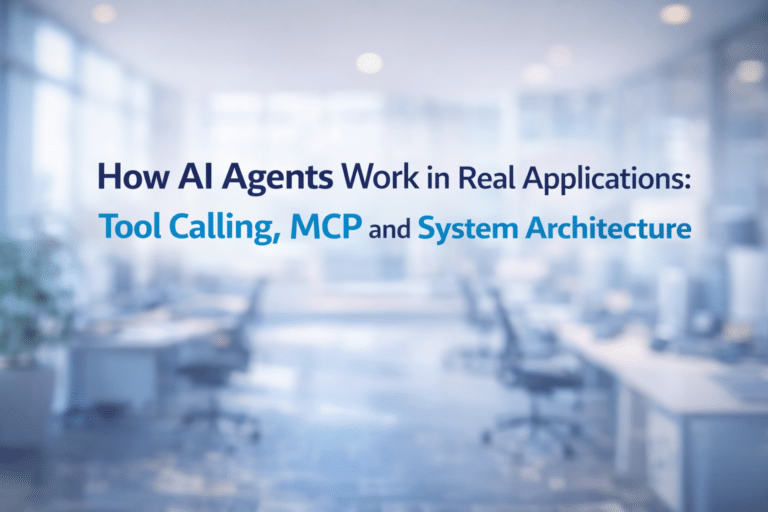eCommerce is becoming more and more necessary for every business as shoppers continue to move to buying conveniently online. Most ERP systems are separate from eCommerce, therefore it is important to think about how your ERP system is going to connect to your separate eCommerce platform when choosing an ERP system.
While providing goods and services on an eCommerce storefront, there might be some shortcomings faced by a business. These shortcomings can be due to
- Operational inefficiency
- Access to all your business departments
- Bad customer experiences
- Slow accounting
- Inventory management problems
- Inefficient coordination between different departments and many more.
In such a scenario, ERP integration can take control and automate the required business processes. The ERP Software basically connects your backend with your eCommerce platform by using a plugin which streamlines the business activities and brings different departments under one roof. The integration with your eCommerce storefront will optimize the functions in your business and you will get better control over your eStore without any hassle.
But, How will you benefit by integrating ERP with an eCommerce storefront? The answer is
Inventory/Stock Synchronization
Inventory or stock management is the backbone of every business. While conducting online business there are certain issues which are faced by the merchant like the double entry of data, demand fluctuations, reverse logistics, stock-outs, managing SKUs, keeping count of the inventory, multi-channel shoppers, bullwhip effect and distressed stocks etc. Product and Inventory sync will minimize the risks put forward by these challenges and make it an easy task to sell on multiple channels, and build trust and confidence with customers, managing product information etc.
For example, the inventory information sync can be taken to a different level when the inventory is managed and maintained in multiple warehouse locations. Without an E-commerce connector, the businesses need to maintain the warehouse and inventory information in the ERP system and then feed the same information into the e-commerce system. Which requires a lot of manual effort.
Sales Orders Synchronization
Since your e-commerce and ERP systems are not integrated, you have to manually transfer orders from your e-commerce system to your ERP system. We know that, because of manual data transfer, you can only sync a limited number of orders between the two systems. To ensure quick turnaround time the only alternative you have is an eCommerce and ERP connector.
Sales Orders are probably the real reason why most businesses consider e-commerce and ERP integration. There is a lot of synergy between e-commerce and ERP systems as far as orders are concerned – As the orders are accepted in the e-commerce system and the actual fulfilment happens in the ERP system.
Invoices Synchronization
An invoice is considered a critical financial document in any e-Business model. Customers place orders in the online web store and based on the payment mode the invoice is generated. In case the payment is made through an online payment gateway the invoice automatically gets generated in the eCommerce platform and in case any offline payment mode is selected e.g. COD, bank draft etc. the invoice needs to be generated manually.
However in an eBusiness model, if the back office operations are controlled through an ERP system, the invoice also need to be managed there. In a scenario when the payment is made online and the invoice is generated instantly in the web store, the invoice details also need to be present in the ERP system. Similarly, in the scenario of offline payment as per general practices, the invoice is generally generated in the ERP system and it needs to be entered in the eCommerce platform also. So it becomes a challenge for the merchant to ensure accurate entry of data into the two systems which in turn consumes a considerable amount of time and effort.
Improved Accounting
The numbers are the real game changer, they can make a business and they can doom one. Clear accounting figures help a business grow, with no flaws. But in reality, this case of clear accounting under a manual interpretation of data doesn’t really follow, especially while conducting an online business.
An ERP integration with eCommerce has several features that can help your business be a success in a shorter period of time. As it can help you better manage tasks like managing shipping costs, tracking expenses, tracking shipping and delivery status, organising inventory, etc. Moreover, a proper integration of an ERP to an eCommerce website enables the flow of information bidirectionally between the two systems meaning that the data only needs to be entered once into the system.
Better Customer Experience
The main agenda of a business is that the data should be properly synchronized. Customer information sync will help you drive benefits like personalizing customer experience, providing self-service customer portals and more. Synchronizing customer information between ERP and eCommerce systems is the step that will add uniformity in customer experience.
For example, a customer who often shops in your e-commerce store calls your customer service team to change its shipping address and the required change is reflected in the ERP system. Now, any change in customer information in either of the applications (ERP /eCommerce) will reflect in the other automatically post-integration. But doing these changes manually for a load of customers will be time-consuming no matter what.
Now you know the solution to the daily hassles faced by you and your customers in your eStore. By implementing the ERP and eCommerce Connector, you can easily run your business in your own way as you also have an option for customization which will integrate your productivity.



